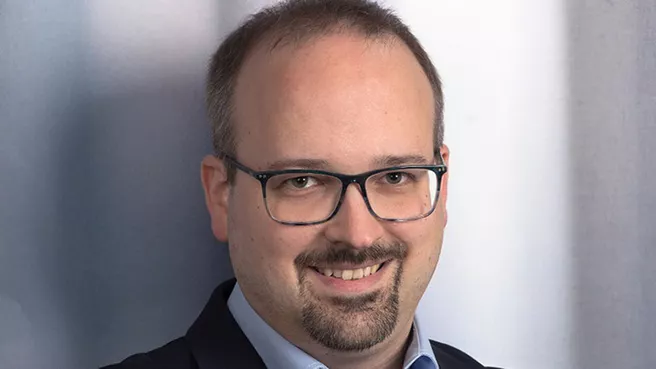What research projects are you working on?
The main topic of the professorship for Cellular Agriculture is the development of biotechnological processes and concepts for the alternative production of agricultural products. This addresses problems and challenges related to environmental impact, animal welfare and sustainability aspects of conventional animal husbandry for meat production. Cultured meat ("Cultured Meat") and future protein-based products for human consumption can be produced by bioproduction processes ("Precision Fermentation") as well as by using mammalian cell lines. In order to be able to cover part of the food supply by this and to make these new technologies successful in the long term, significant efficiency improvements as well as challenges in scaling up have to be solved.
To address this, bioscaffolding technologies are being developed in Cellular Agriculture using special 3D printing processes as scaffold structures for cell culture. These should enable scalable production of cell culture-based meat for the future.
Furthermore, the highly efficient biotechnological production of functional components for food (e.g. natural and semi-synthetic proteins) is investigated. For this purpose, modern approaches of process development, supported by artificial intelligence methods, as well as integrated concepts of molecular bioprocess control are applied.
On which topic would you like to exchange ideas with students in a relaxed atmosphere?
As with very many topics, Cellular Agriculture and - especially Cultured Meat - can be looked at from several angles. The particularly nice thing about this topic is that in most cases everyone finds a personal motivation: from environmental protection, to animal ethics, to food security and justice. I would love to talk to students about your personal take on Cellular Agriculture - from research ideas to commercialization. In my experience, this is where an exciting dialogue about the benefits, drawbacks, and challenges of Cellular Agriculture can be achieved, and where you are welcome to engage in a critical examination of the subject matter.
And how does practice benefit from your research findings?
Cellular Agriculture at the TUM School of Life Sciences is positioned at the interface between research and practice, and thematically between engineering, biotechnology and food sciences. An important feature is that our core competencies have their roots in industrial biotechnology. These range from the development of cost-effective and highly efficient processes, starting with strain development methods, to process control and purification methods. This opens up the possibility for us to cover the entire process chain, and at the same time to have important efficiency parameters of industrial biotechnology in view at an early stage. Furthermore, at TUM we have the opportunity to pursue one or the other unconventional (or "crazy") idea in the field of cellular agriculture. One of my goals is to strengthen the transfer into practice based on these concepts. Here, students in particular are also needed - I am always open to new ideas, feel free to contact me!
More information:
Prof. Marius Henkel studied biosystems engineering at the University of Magdeburg and then earned his doctorate at the Institute of Bio- and Food Technology at the Karlsruhe Institute of Technology (KIT) on the topic of model-based optimization of a bioprocess for the production of biosurfactants. After his PhD, he moved to the Department of Bioprocess Engineering at the University of Hohenheim as a PostDoc and was employed there as a senior scientist for several years.
Publications:
- Kiefer, Dirk; Tadele, Lea Rahel; Lilge, Lars; Henkel, Marius; Hausmann, Rudolf: High-level recombinant protein production with Corynebacterium glutamicum using acetate as carbon source. Microbial Biotechnology, 2022. https://doi.org/10.1111/1751-7915.14138
- Xing, Hu; Zhang, Yiting; Krämer, Markus; Kissmann, Ann-Kathrin; Amann, Valerie; Raber, Heinz Fabian; Weil, Tanja; Stieger, Kai R.; Knippschild, Uwe; Henkel, Marius; Andersson, Jakob; Rosenau, Frank: A Polyclonal Aptamer Library for the Specific Binding of the Gut Bacterium Roseburia intestinalis in Mixtures with Other Gut Microbiome Bacteria and Human Stool Samples. International Journal of Molecular Sciences 23(14), 2022, 7744. https://www.mdpi.com/1422-0067/23/14/7744
- Xing, Hu; Zhang, Yiting; Krämer, Markus; Kissmann, Ann-Kathrin; Henkel, Marius; Weil, Tanja; Knippschild, Uwe; Rosenau, Frank: A Polyclonal Selex Aptamer Library Directly Allows Specific Labelling of the Human Gut Bacterium Blautia producta without Isolating Individual Aptamers. Molecules 27 (17), 2022, 5693. https://doi.org/10.3390/molecules27175693
Editing:
Susanne Neumann
TUM School of Life Sciences
Press and Public Relations
